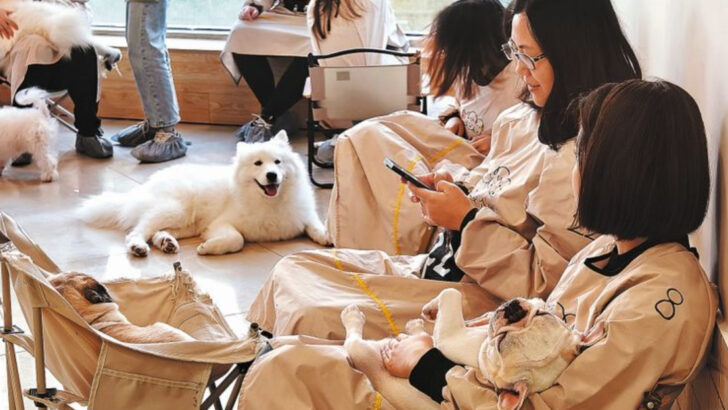In recent years, Japan has experienced a fascinating demographic shift: there are now more pets than children in the country.
This phenomenon can be attributed to various cultural, economic, and social factors. The trend reveals intriguing insights into Japanese society’s evolving values and lifestyle preferences.
Each section below explores a unique aspect of this trend, shedding light on the reasons behind it and its implications for the future.
From the cultural significance of pets to the influence of urban living, these ten facts provide a comprehensive look at why pets are outnumbering children in Japan.
Cultural Significance of Pets

Pets, especially dogs and cats, are deeply woven into the fabric of Japanese culture. Known for their loyalty, dogs like the Shiba Inu have been part of Japanese households for centuries.
The Shinto religion, which reveres nature and animals, contributes to this connection. In modern Japan, pets are not just companions but symbols of familial love and unity. Walking a dog through cherry blossom paths is a common sight, symbolizing harmony with nature.
The cultural embrace of pets reflects an intrinsic part of Japanese identity, fostering strong emotional bonds beyond mere ownership.
Urbanization and Living Spaces
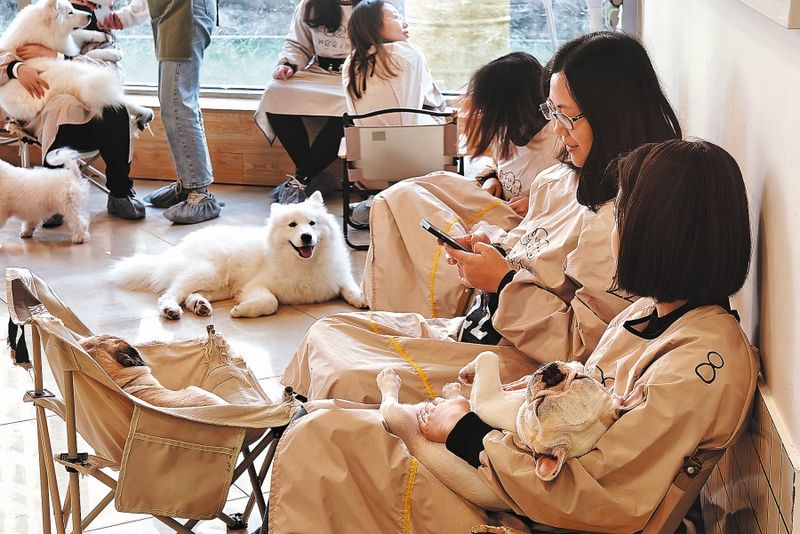
Japan’s rapid urbanization has significantly impacted family structures and living arrangements. With more people residing in compact apartments, the preference for pets over children becomes evident.
Pets require less space and are compatible with urban lifestyles. High-rise living often includes pet-friendly amenities, fostering a community of animal lovers. This urban trend coincides with declining birth rates, as the cost and space required for raising children soar.
As skyscrapers dominate the skyline, pets fill the emotional and companionship void, becoming integral parts of city life.
Economic Considerations

Raising children in Japan is an expensive endeavor, driving many couples to opt for pets instead. The financial burden of education, healthcare, and housing for children is substantial. In contrast, pets are seen as more affordable companions.
Luxury pet products and services cater to this trend, with pet cafes and boutiques flourishing. The economic landscape influences family planning decisions, making pets a practical alternative.
As pet ownership rises, so does the market for pet-related industries. This economic shift highlights changing priorities in modern Japanese society.
Aging Population

Japan’s aging population contributes to the rise in pet ownership. Elderly individuals often seek companionship from animals, finding joy and purpose in their care.
Pets offer emotional support and help alleviate loneliness. In a society where family structures are changing, seniors turn to pets for comfort and interaction. The bond between elderly owners and their pets is often profound, featuring daily routines and rituals.
This trend underscores the vital role pets play in providing companionship to aging individuals, enhancing their quality of life and well-being.
Pet-Friendly Workplaces
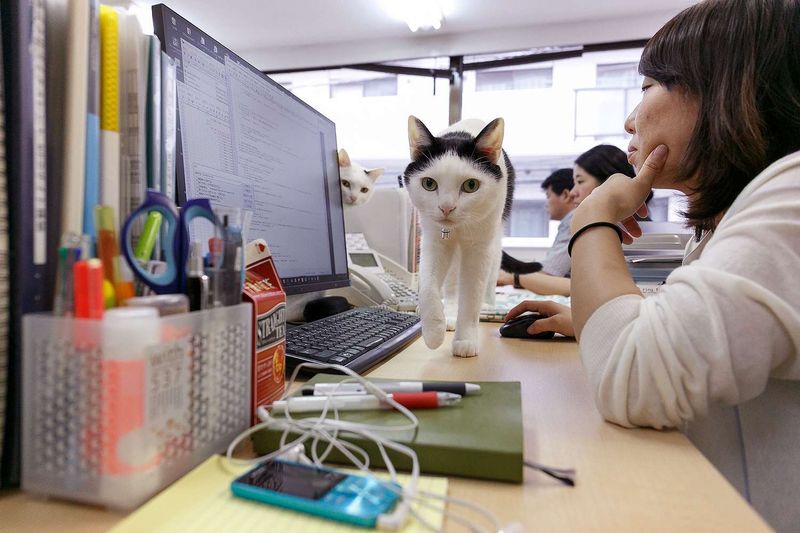
Some Japanese companies embrace pet-friendly policies, allowing employees to bring their pets to work. This practice fosters a positive work environment, reducing stress and encouraging social interaction.
Pets in the workplace promote a sense of community and well-being. As work-life balance gains importance, pet-friendly offices become more appealing to employees.
This trend aligns with broader societal changes, where pets are increasingly viewed as family members. The integration of pets into the corporate world reflects a shift towards more inclusive and supportive workspaces in Japan.
Pet Cafes and Social Hubs
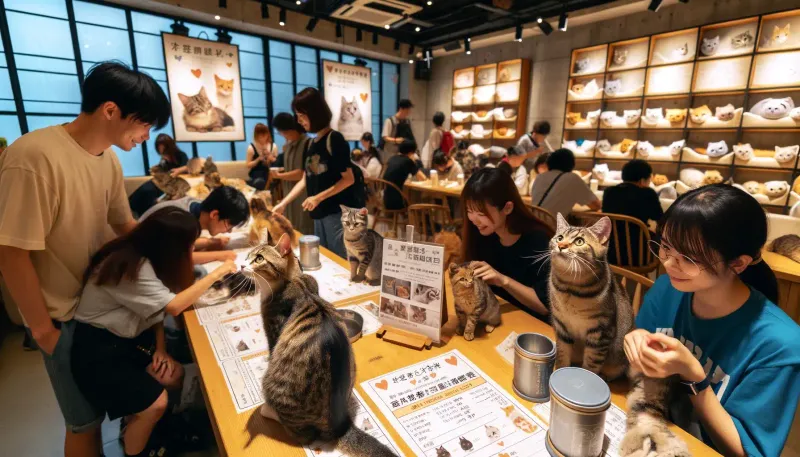
Pet cafes have become popular social hubs in Japan, offering a unique way to interact with animals. These establishments provide a relaxing atmosphere where patrons can enjoy a beverage while bonding with furry companions.
Cat cafes, in particular, attract both locals and tourists. They offer a respite from the bustling city life and fulfill the desire for animal companionship. The rise of pet cafes illustrates the growing demand for pet interactions without the long-term commitment.
This trend enhances community engagement and reflects the societal shift in how relationships with animals are valued.
Declining Birth Rates

Japan’s declining birth rates are a significant factor in the rising pet population. Economic pressures, career priorities, and lifestyle choices contribute to couples having fewer children.
This demographic shift results in a greater focus on pets as alternative family members. Statistics reveal a direct correlation between declining births and increasing pet ownership. As society grapples with this challenge, pets become essential companions, filling emotional voids.
This trend underscores the profound impact of changing family dynamics in Japan, where pets play a pivotal role in modern households.
Pets as Emotional Support

In Japan, pets are increasingly recognized for their emotional support benefits. Therapy animals are integrated into healthcare settings to provide comfort and aid recovery.
Beyond therapy, many individuals find solace in the presence of pets, enhancing mental well-being. The companionship of animals helps reduce stress and anxiety in everyday life. Japanese culture, which values harmony and peace, aligns with the calming influence of pets.
This growing appreciation for pets as emotional anchors reflects broader societal changes in how mental health is approached and valued in Japan.
Pet Ownership Trends Among Singles

The rise in single-person households contributes to increased pet ownership among young professionals in Japan. Pets offer companionship and alleviate loneliness for individuals living alone.
Birds, cats, and small dogs are popular among singles due to their manageable size and care requirements. This trend reflects shifting societal norms, where traditional family structures are evolving. For many, pets represent a sense of stability and comfort, fitting seamlessly into their lifestyles.
The preference for pets among singles highlights a broader cultural adaptation to modern living arrangements.
Fostering Pet Culture from a Young Age
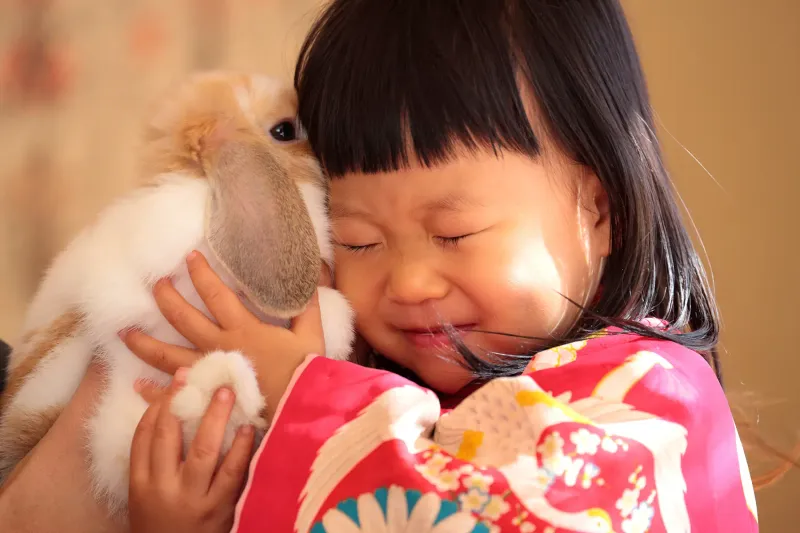
Introducing children to pets at a young age fosters empathy and responsibility. Schools in Japan often incorporate animal care into their curriculum, encouraging interaction with diverse pets.
This early exposure nurtures a lifelong appreciation for animals and their welfare. Children learn valuable lessons in compassion and caretaking. Such educational initiatives highlight the importance of animals in personal development.
As pet culture becomes ingrained in childhood experiences, future generations grow up valuing the companionship and joy pets bring. This approach reflects a broader societal commitment to nurturing well-rounded, empathetic individuals.

